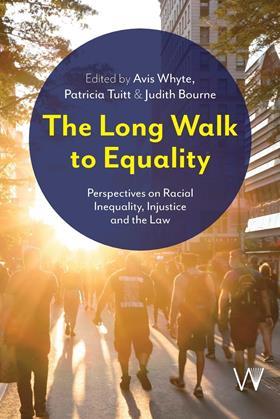The Long Walk to Equality: Perspectives on Racial Inequality, Injustice and the Law
Edited by Avis Whyte, Patricia Tuitt and Judith Bourne
£22.99, University of Westminster Press
★★★✩✩
This book provides practitioners, and anyone else interested in racial equality in the workplace and beyond, with the opportunity to deepen their understanding of the theories and concepts that underpin racial equality issues.
However, this is not a book that sets out the legislation and latest case law developments in relation to race discrimination in the UK. So if you are looking for commentary on the latest case law – on, for example, justification of indirect race discrimination in the workplace – this is not the book for you.
Of particular interest to some practitioners will be two chapters: Neo-tribal Sociality in the Upper Echelons of the Legal Profession; and The Potential for Diversity Initiatives to Change the Ethnic Profile of the Solicitors’ Profession.

The chapter on the legal profession contains a detailed and critical examination of advertising material used by magic circle law firms and leading commercial chambers in recruitment and of what it says about how they seek to address issues of race. The book observes that the advertising used by these firms is not reflective of the lived experience of black and brown lawyers working at these firms and chambers.
The chapter on Diversity Initiatives offers a helpful chronology charting the history of calls for increased racial diversity in the legal profession, dating back to the 1970s. The authors also set down practical suggestions for making such initiatives more effective.
There are similar chapters which consider how issues of race play out in other public and private institutions, for example in universities, policing, financial services and immigration services. (The chapter that looks at universities includes consideration of how effective the ‘positive action’ provisions of the Equality Act 2010 are in ‘levelling up’ the playing field when it comes to race in the workplace.)
The book also considers the contributions which the International Convention on the Elimination of All Forms of Racial Discrimination (1965) has made in the fight for global racial equality.
In conclusion, I came away with a much more rounded understanding on the development of race discrimination law globally – and how this has played out in different sectors in the UK.
Paul McFarlane is a partner at Capsticks Solicitors LLP, London































No comments yet